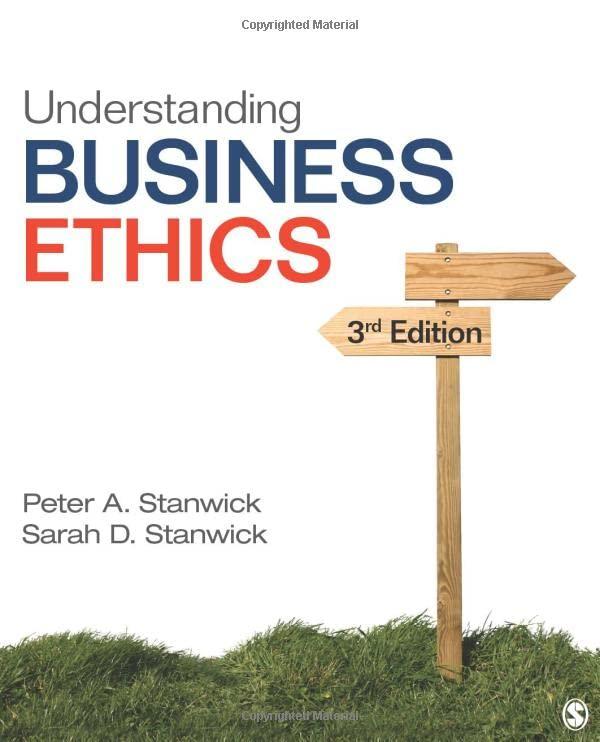Answered step by step
Verified Expert Solution
Question
1 Approved Answer
Define the following concepts: pollution, toxic substance, nuclear waste, exponential depletion, peaked depletion, free good, unlimited good, ecological sys-tem, ecological ethic, right to a livable
- Define the following concepts: pollution, toxic substance, nuclear waste, exponential depletion, peaked depletion, free good, unlimited good, ecological sys-tem, ecological ethic, right to a livable environment, absolute ban, private costs, social costs, external costs, to internalize costs, cost-benefit analysis, risk, social audit, right of consent, conservation, rights of future generations, justice toward future generations, multiple access, time preference, doomsday scenario, high-consumption nation.
- Define the main forms of pollution and resource depletion and identify the major problems associated with each form.
- Compare and contrast the views of (a) an ecological ethic, (b) Blackstone's ethic of environmental rights, and (c) a utilitarian ethic of pollution control. Which view seems to you to be the more adequate? Explain your answer.
- Do you agree with the claims that (a) future generations have no rights, and (2) the future generations to which we have obligations actually include only the generation that will immediately succeed us? Explain your answer. If you do not agree with these claims, state your own views, and provide arguments to support them.
- In your judgment, should the major decisions on pollution and resource depletion (especially energy policy) be made by government experts? By scientific experts?
By everyone? Provide moral arguments in support of your judgment. - "Any pollution law is unjust because it necessarily violates people's right to liberty and right to property." Discuss.
- In their book Energy Future, R. Strobaugh and D. Yergin claimed that in the debate over nuclear power "the resolution of differing opinions over how to deal with uncertainty, over how much risk is acceptable, or how safe is safe enough-all require judgments in which values play as large a role as scientific facts" (p. 100).
Discuss this claim.
Step by Step Solution
There are 3 Steps involved in it
Step: 1
Answer Lets break this down step by step 1 Definitions Pollution Introduction of contaminants into the natural environment causing adverse changes Toxic substance Chemicals harmful to living organisms ...
Get Instant Access to Expert-Tailored Solutions
See step-by-step solutions with expert insights and AI powered tools for academic success
Step: 2

Step: 3

Ace Your Homework with AI
Get the answers you need in no time with our AI-driven, step-by-step assistance
Get Started


